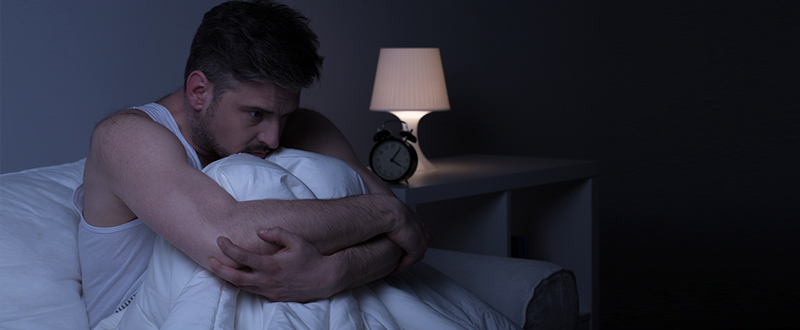
The Relation Between Anxiety and Hypertension

Introduction To Anxiety And HypertensionEver wondered how to reduce blood pressure? There are ample treatments for hypertension available, but before we get there, we must understand the relationship between anxiety and hypertension. Anxiety has been touted to be one of the common causes that go hand in hand with hypertension.
While hypertension is defined as having a systolic blood pressure of 140 mm Hg or higher and a diastolic blood pressure of 90 mm Hg,. aAnxiety is characterized as an intense feeling of worry or fear. Anxiety is known to cause very evident physical symptoms such as increased heart rate, high blood pressure, sometimes even perspiration.
Impact Of Anxiety On Hypertension

When you are anxious, your body releases the stress hormone such as adrenaline, noradrenaline, etc., which triggers an increase in heart rate and brings about the narrowing of your blood vessels. Both these events cause an increase in blood pressure. In fact, before understanding how to reduce blood pressure, the exact cause of it must be determined, and if it is anxiety, it must be treated simultaneously.
Impact Of Hypertension On Anxiety

Sometimes, anxiety and low blood pressure may also be seen in some people. This occurs because intense anxiety attacks can cause a sudden drop in blood pressure, leading to low blood pressure instead of high.
Treatments For Anxiety
Feeling anxiety once in a while is normal. But experiencing it too often and for long periods has adverse effects on the body and mind. The most common treatment options for anxiety include–
- Doctor Consultation:
This is the first and foremost step that has to be taken in such a scenario. Consulting your family doctor or an expert cardiologist will help you understand the exact nature of the problem.
- Psychotherapy Sessions:
Multiple psychotherapy sessions with a psychiatrist or a counsellor can help manage anxiety symptoms. Some psychiatrists use Cognitive Behavioural Therapy, and people are trained to accept situations without anxiety.
- Adopt Healthy Lifestyle Changes:
Make small changes in your lifestyle that can help you manage your anxiety. Some of these include– breathing exercises, meditation, regular workouts, getting adequate sleep, having a healthy high blood pressure diet, reducing stressful situations in your daily life, practicing optimism, etc. In people who do not achieve anxiety control with supportive measures, drug treatment may be initiated to control it. One should note that visiting a psychiatrist may prove beneficial in many people with hypertension.
Treatments for Hypertension
Hypertension treatment usually begins with lifestyle changes. Some people will also need medications to help control their blood pressure levels.
Lifestyle changes for treating hypertension include–
Medications may be prescribed based on each individual patient’s condition and requirement.
Conclusion
There is a clear link between anxiety and hypertension, and suffering from one of these conditions chronically can give rise to the other as well. Getting anxiety and hypertension treated together is the best way to manage both conditions.
Note of Caution: This article is for information purpose only. Always consult your doctor in case of any blood pressure or other health-related problems.
Disclaimer
The information contained in this article is to educate, spread awareness in relation to hypertension and other diseases to the public at large. The contents of this article are created and developed by BPinControl.in through its authors, which has necessary, authorisations, license, approvals, permits etc to allow usage of this articles on The Website. The views and opinions expressed in this article are views, opinions of the respective authors and are independently endorsed by doctors. Although great care has been taken in compiling and checking the information in this article, The Website shall not be responsible, or in any way liable for any errors, omissions or inaccuracies in this article whether arising from negligence or otherwise, or for any consequences arising therefrom. The content of this article is not a substitute for any medical advice. The Website shall not be held responsible or liable for any consequence arising out of reliance on the information provided in the article.

 This is the first and foremost step that has to be taken in such a scenario. Consulting your family doctor or an expert cardiologist will help you understand the exact nature of the problem.
This is the first and foremost step that has to be taken in such a scenario. Consulting your family doctor or an expert cardiologist will help you understand the exact nature of the problem. Multiple psychotherapy sessions with a psychiatrist or a counsellor can help manage anxiety symptoms. Some psychiatrists use Cognitive Behavioural Therapy, and people are trained to accept situations without anxiety.
Multiple psychotherapy sessions with a psychiatrist or a counsellor can help manage anxiety symptoms. Some psychiatrists use Cognitive Behavioural Therapy, and people are trained to accept situations without anxiety. Make small changes in your lifestyle that can help you manage your anxiety. Some of these include– breathing exercises, meditation, regular workouts, getting adequate sleep, having a healthy
Make small changes in your lifestyle that can help you manage your anxiety. Some of these include– breathing exercises, meditation, regular workouts, getting adequate sleep, having a healthy  Regularly visiting the doctor.
Regularly visiting the doctor. Eating a healthy, fiber-rich diet with more fruits and veggies.
Eating a healthy, fiber-rich diet with more fruits and veggies. Reducing or avoiding salt in their diet.
Reducing or avoiding salt in their diet. Avoid caffeine, tobacco, and alcohol.
Avoid caffeine, tobacco, and alcohol. Regular workouts and exercise.
Regular workouts and exercise. Weight management to stay within the optimal BMI range.
Weight management to stay within the optimal BMI range.
Comments (8)
Ankit
How do I control my anxiety?
Laxmi
What are the effective ways to control blood pressure?
Chetan
My dad has hypertension, will I have it too?
Shradha
If I have hypertension, can it lead to a significant heart-related issue?
Add your comment